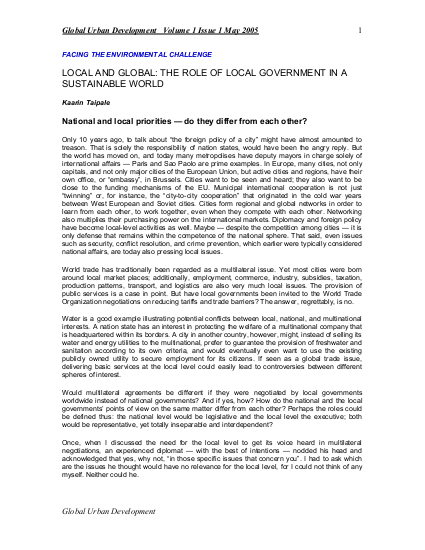
Only 10 years ago, to talk about “the foreign policy of a city” might have almost amounted to treason. That is solely the responsibility of nation states, would have been the angry reply. But the world has moved on, and today many metropolises have deputy mayors in charge solely of international affairs — Paris and Sao Paolo are prime examples. In Europe, many cities, not only capitals, and not only major cities of the European Union, but active cities and regions, have their own office, or “embassy”, in Brussels. Cities want to be seen and heard; they also want to be close to the funding mechanisms of the EU. Municipal international cooperation is not just “twinning” or, for instance, the “city-to-city cooperation” that originated in the cold war years between West European and Soviet cities. Cities form regional and global networks in order to learn from each other, to work together, even when they compete with each other. Networking also multiplies their purchasing power on the international markets. Diplomacy and foreign policy have become local-level activities as well. Maybe — despite the competition among cities — it is only defense that remains within the competence of the national sphere. That said, even issues such as security, conflict resolution, and crime prevention, which earlier were typically considered national affairs, are today also pressing local issues.
Resource collections
- Climate emergency
- Topics
- UN Habitat - Urban Response Collection
- Urban Response - Urban Crisis Preparedness and Risk Reduction
- Urban Response Collection - Community Engagement and Social Cohesion
- Urban Response Collection - Economic Recovery
- Urban Response Collection - Environment and Climate Change
- Urban Response Collection - Housing, Land and Property
- Urban Response Collection - Urban Crisis Response, Recovery and Reconstruction
- Urban Response Collection - Urban Resilience
